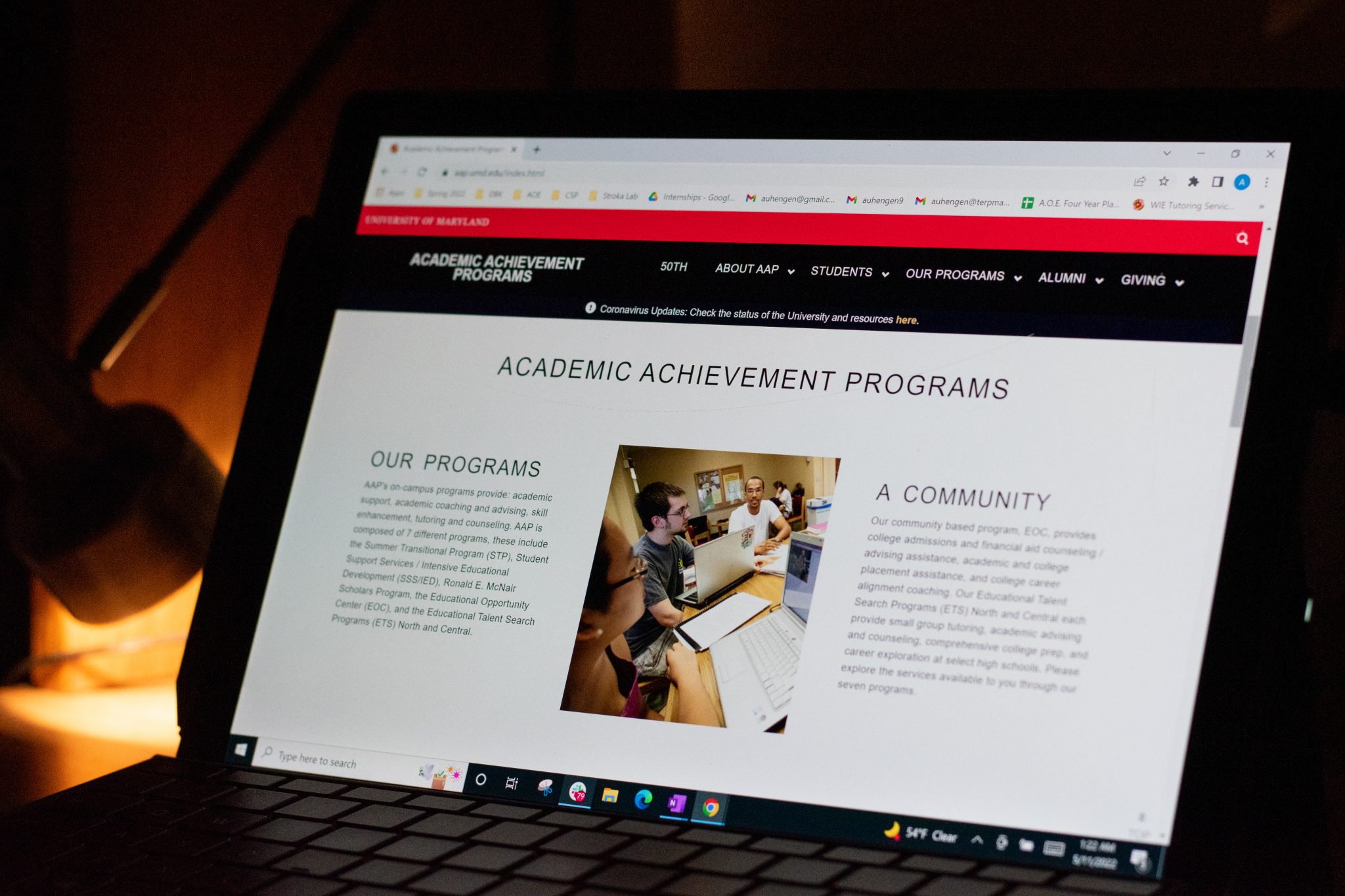The Academic Achievement Programs, a department at the University of Maryland designed to foster academic success, will expand its course offerings for its tutoring service after this semester.
The program will increase the number of courses it offers tutoring for to more than 40 courses from its current listing of 35 courses, said Sharon VanWright, the director of the program’s Intensive Educational Development Unit. The unit houses the Academic Success and Tutorial Services program of the Academic Achievement Programs.
The AAP wants to bring back courses it used to offer, VanWright said. It will also seek to offer services in the summer, VanWright said.
Formed in 1967 with the goal of supporting students at this university in their academic journeys, according to its website, the program established its tutoring services around late 2015, said Shakeena King, the department’s tutor coordinator.
After King joined the program three years ago, AAP had to reduce its course offerings due to budget constraints. She said she’s been pushing to expand the program since joining.
“It was very sad that I had to put restrictions [in place],” King said. “Now that we’re actually expanding, we’re much more available to students.”
[TerpsEXCEED’s inaugural class reflects on first year at UMD]
The program is also planning to advertise more on social media, she said.
Architecture graduate student Samanty Habib said she was excited about the program’s expansion, especially the marketing aspect.
Habib said she also hopes the program will start to offer courses in departments where there aren’t as many tutoring options, such as architecture.
“The main ones right now are chemistry, math, physics … but architecture was one that I don’t think they’ve ever tutored for,” she said. “I’d love to be a tutor for any architecture courses. And I feel like a lot of the architecture students would definitely appreciate that.”
The Academic Success and Tutorial Services’ ability to give students an individualized experience separates it from other tutoring services on campus, King said.
Their appointment-based system allows for student flexibility with both the tutors and the students getting help, she added. Tutors often help small groups of students during their sessions, five at a time at most, King said.
“We’re also giving students a little bit more personalized assistance,” King said. “Even when they sign up, they can fill out a form and say what they want to get help with.”
[Disability on Campus: Life navigating accessibility and accommodations at UMD]
It also has the option to have the session online or in person, or arrange a one-on-one meeting.
Though the expansion of tutoring services is beneficial, the university should still work to support more tutoring services on campus, VanWright said.
“It’s more a [question of] how the institution supports overall peer-led tutoring or tutoring programs,” VanWright said. “It’s not just us. It’s all the other departments that really play a role in peer-led education.”
CORRECTION: A previous version of this story misstated the names of the Academic Success and Tutorial Services and the Academic Achievement Programs. The story has been updated.



